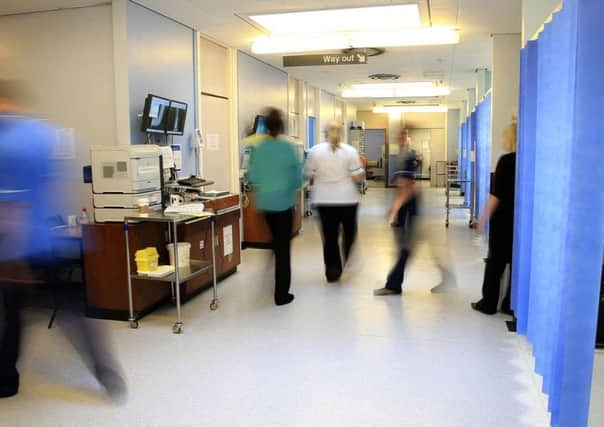Government '˜failure' led to 1.5m avoidable hospital admissions last year


The Public Accounts Committee (PAC) has accused the Government of failing to properly fund out-of-hospital services designed to prevent admissions in a report out today.
During 2016-17, there were 5.8m emergency admissions to hospitals in England, the PAC said.
Advertisement
Hide AdAdvertisement
Hide AdSome 24 per cent would have been avoided if GPs, community services and social care organisations had worked together more effectively.
It meant cash-strapped hospitals struggled to cope with demand and planned operations had to be cancelled. In January this year, the NHS carried out 23,000 fewer operations than in the same month the previous year, the report said.
Meg Hillier MP, who chairs the committee, said: “The consequences of Government’s failure to properly fund and coordinate preventive health care and social care are laid bare in this report.
“Around a quarter of emergency admissions to hospital could and should have been avoided.
Advertisement
Hide AdAdvertisement
Hide Ad“That they were not further threatens the ability of cash-strapped hospitals to cope with demand and risks harm to patients through, for example, unnecessary overnight stays or the postponement of operations.
“The financial challenges facing the NHS and adult social care are well-documented and it is critical that taxpayers’ money is spent on what works best.”
The report found that the avoidable admissions led to rising bed-occupancy rates. The average number of available beds in hospitals fell by almost six per cent between 2010-11 and 2016-17.
Progress had been made in reducing the impact on hospitals and patients of emergency admissions. But there had been “no impact” on reducing avoidable hospital admissions.
Advertisement
Hide AdAdvertisement
Hide AdThe report said: “The proportion of avoidable admissions has been rising faster than the overall rate of emergency admissions since 2013-14. However, the NHS had not made the necessary investment to fund this kind of preventative work and the need to make short term savings means local areas have been overlooking investment in preventative services.
“Social services also help prevent people needing an emergency admission, and we find the combination of rising demand for social services and limited local authority finances particularly worrying.” In January NHS England advised hospitals to cancel non-urgent operations so they could concentrate in emergency care. The report said the approach gave patients “greater certainty” because their appointments were not cancelled on the same day. But it added: “However, this gives little comfort to patients whose operations were cancelled and we remain concerned that cancelled operations are a sign of failure in how the system is operating.”
A Department of Health and Social Care Spokesperson said: “We know the social care system is under pressure.
“That’s why we’ve given an extra £2bn funding and will shortly outline reforms so it is sustainable for the future, including closer integration of health and social care to support efforts to keep people healthy and out of hospital.”